On July 30, 2025, the event (In the AI Era, How Can RWA Assist Chinese Culture Going Overseas?) jointly organized by Longyun Cultural Technology Group, the National Key Laboratory of Blockchain at Zhejiang University Hangzhou High-tech Research Institute, and Mankun Law Firm was successfully held in Xuhui, Shanghai, at the Shuchain Space.
This event invited several industry leaders from organizations including Kaiying Network, Hashkey, TensorsLab, AI Compliance Circle, Shanghai Zhonglian Law Firm, Web3 Compliance Research Group, and Chain Law Technology to engage in in-depth sharing around core topics such as how the tokenization of real-world assets (RWA) can assist in the landing of Chinese AI content creation.
Despite the constant rain on that day, the venue was still filled to capacity. Guests engaged in multi-dimensional practical sharing and in-depth discussions on 'how to turn content into assets and how culture can go overseas', bringing the industry an insightful and practical exchange event.
Opening Speech
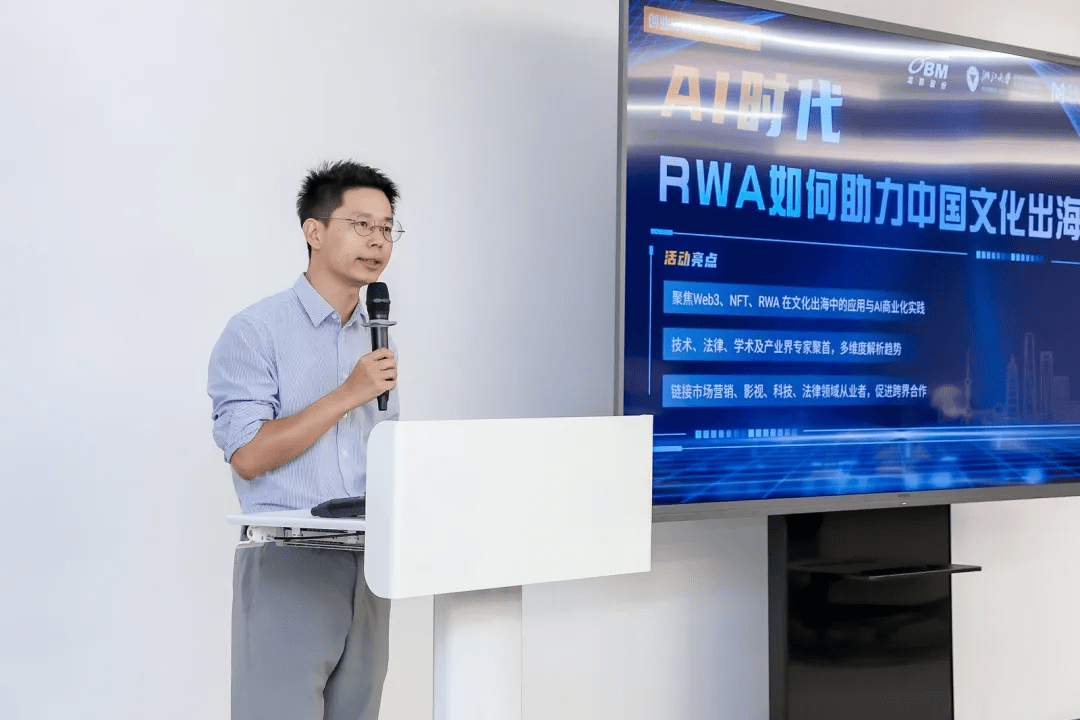
Liu Honglin, founder of Shanghai Mankun Law Firm
At the beginning of the event, the representative of the organizer, Lawyer Liu Honglin, founder of Mankun Law Firm, took the stage to give a speech, opening the salon. In his opening remarks, Lawyer Liu directly pointed out the core topic of this event:
'When AI reshapes the boundaries of content creation, RWA is breaking down the barriers of asset circulation. We are at a critical juncture of cultural communication and the digital economy.'
In the past, when we talked about 'cultural going overseas', it was more about the 'communication power' of the content itself—short videos, national styles, and animations have indeed 'gone viral'. However, the real commercial value has been difficult to settle, with practical pain points such as heavy platform dependence, unclear rights ownership, and difficulties in overseas compliance.
Now, AIGC has brought a leap in content productivity, and Web3 and RWA provide a mechanism logic of 'participation equals rights confirmation, circulation equals assets'. This not only potentially injects a new engine into the cultural industry but also brings new institutional foundations and technical paths for going overseas.
Lawyer Liu expressed great anticipation for this salon, hoping to discuss the possible paths of 'cultural assetization' with guests from various fields such as law, technology, content, platforms, and brands, to find the real landing points of AI and RWA in cultural going overseas, and further promote the collaborative landing of the relevant ecosystem.
Sharing Review
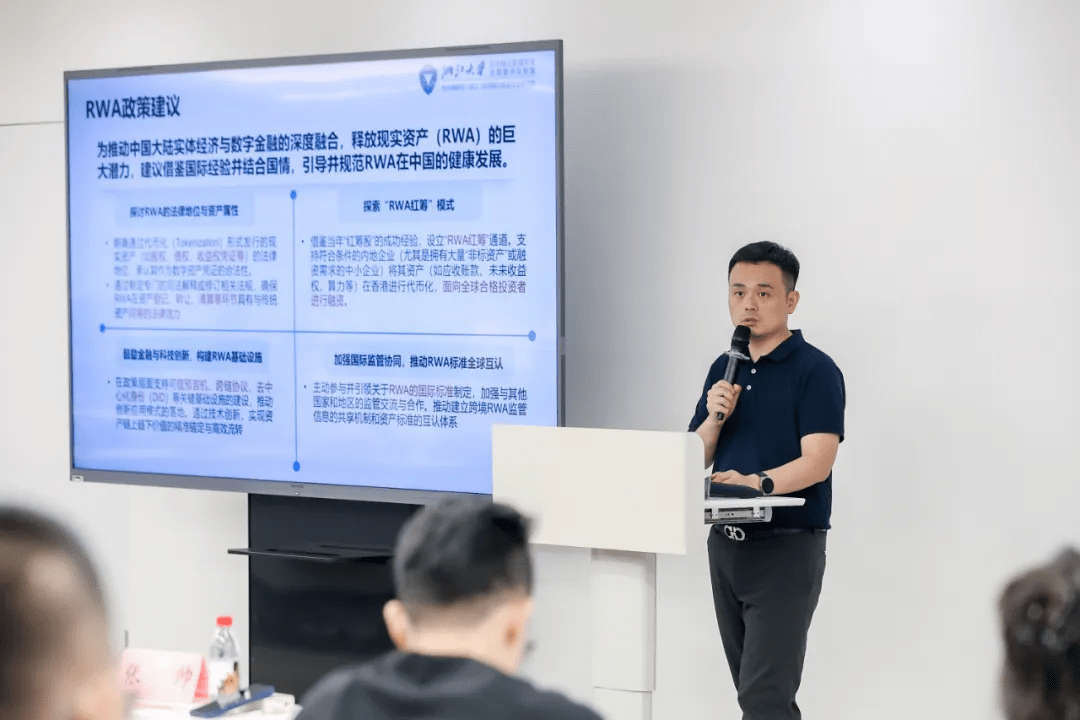
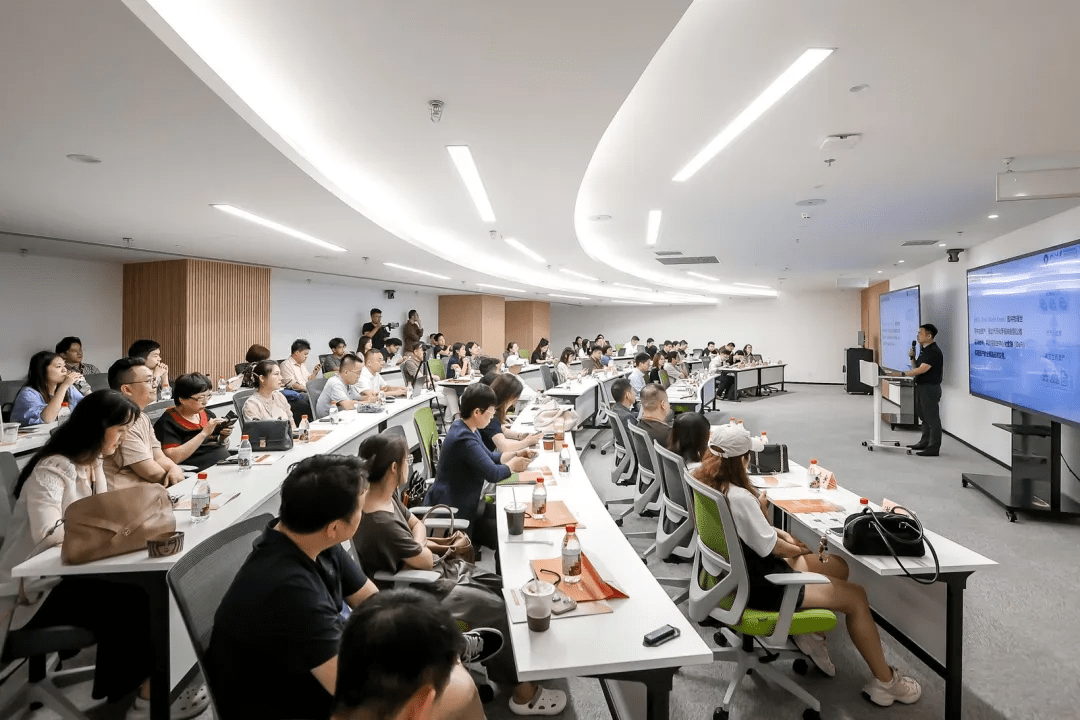
Zhang Shuai, Deputy Director of the National Key Laboratory of Blockchain at Zhejiang University Hangzhou High-tech Research Institute
Director Zhang, with the theme of (RWA: Unlocking the Value of Real Assets and Reshaping New Paradigms for the Real Economy), systematically interpreted the development context and transformative potential of RWA. He pointed out that RWA is tokenizing real assets such as real estate, stocks, and bonds through blockchain technology, breaking down traditional financial liquidity barriers and geographic limitations.
Director Zhang mentioned cases such as BlackRock's issuance of the BUIDL tokenized fund and Kraken's launch of the XStock US stock tokenization service, which confirm the feasibility of integrating traditional finance with blockchain.
Director Zhang emphasized that the core advantage of RWA lies in lowering investment thresholds through fragmentation and leveraging smart contracts and on-chain transparency to solve the 'information black box' problem in traditional asset management. He suggested clarifying the legal status of RWA, constructing technical infrastructure, and exploring the 'RWA red chip' model to assist small and medium-sized enterprises in financing, promoting global regulatory collaboration and mutual recognition of standards.
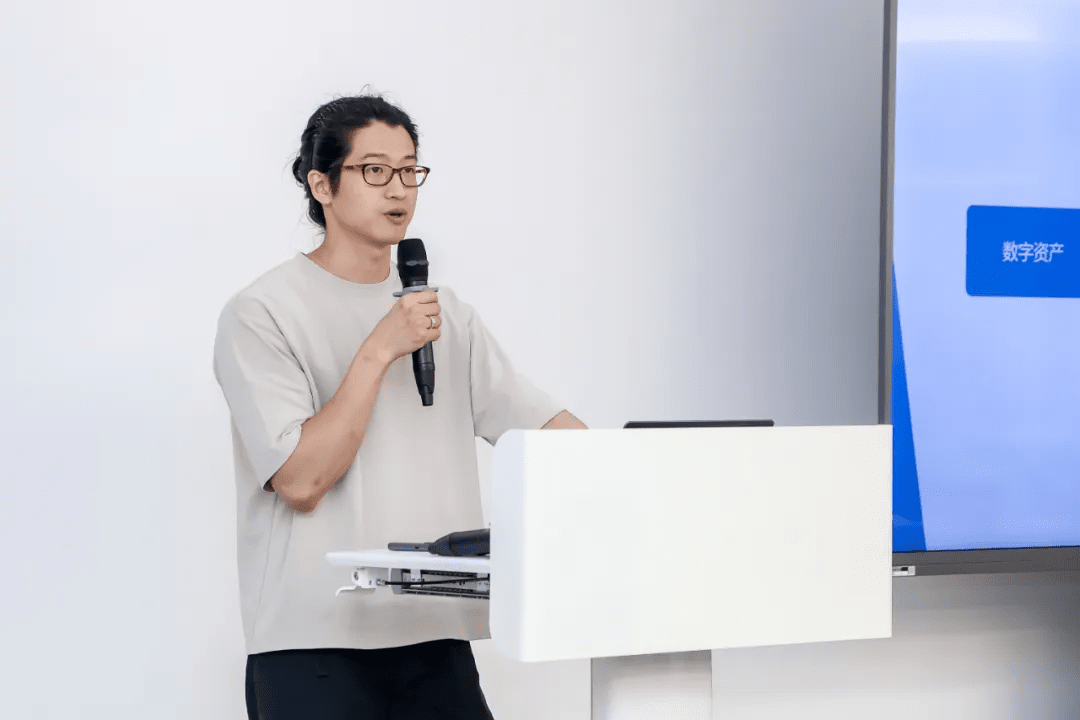
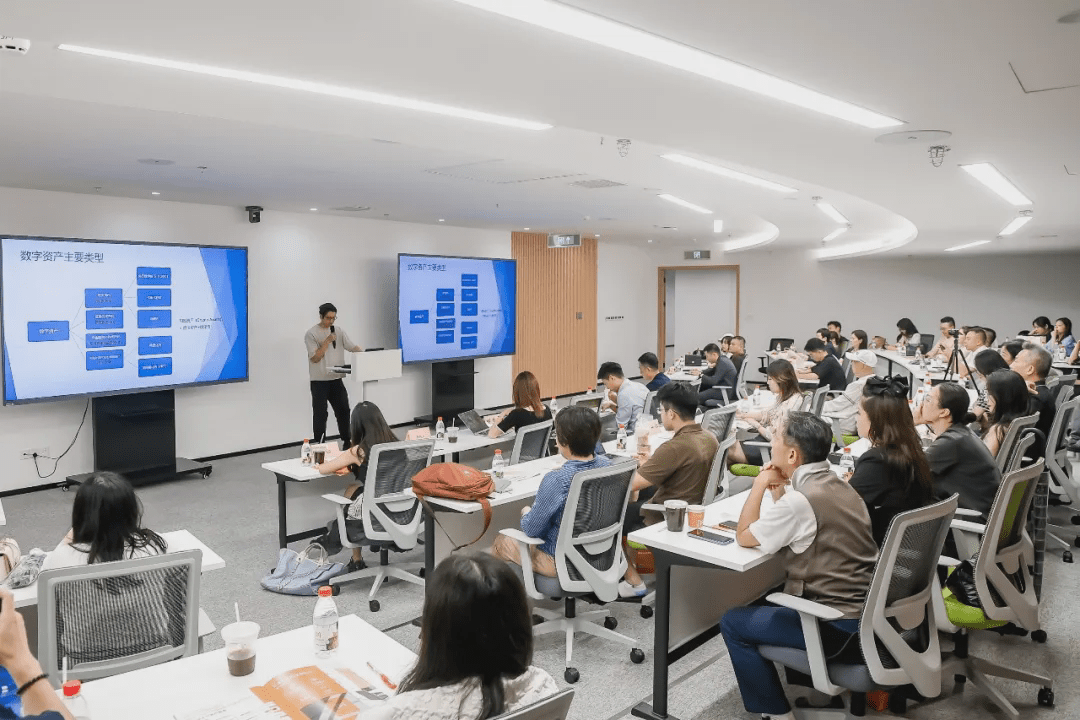
Hashkey Tokenization Researcher - Alex
Teacher Alex focused on the current status and future path of local RWA development, deeply analyzing the unique advantages of international financial centers in the wave of asset digitalization. He introduced that, with a clear regulatory framework and its geographical advantage connecting the mainland and the global market, Hong Kong has become a key hub for RWA cross-border circulation.
From a market structure perspective, RWA currently dominates with private credit and tokenization of US Treasury bonds, with the latter showing significant growth. Hong Kong incorporates tokenized securities into the traditional financial regulatory system based on the principle of 'same business, same risk, same regulation', ensuring compliance while leaving room for innovation.
Looking to the future, Hong Kong plans to promote the regularization of tokenized government bond issuance, expand the tokenization applications of assets such as bulk commodities and renewable energy, and attract global participants through tax incentive policies. Alex believes that with the advancement of the Ensemble project's sandbox experiment, the tokenization of scenarios such as bonds, funds, and carbon credits will accelerate, further consolidating Hong Kong's position as a global digital asset innovation center.
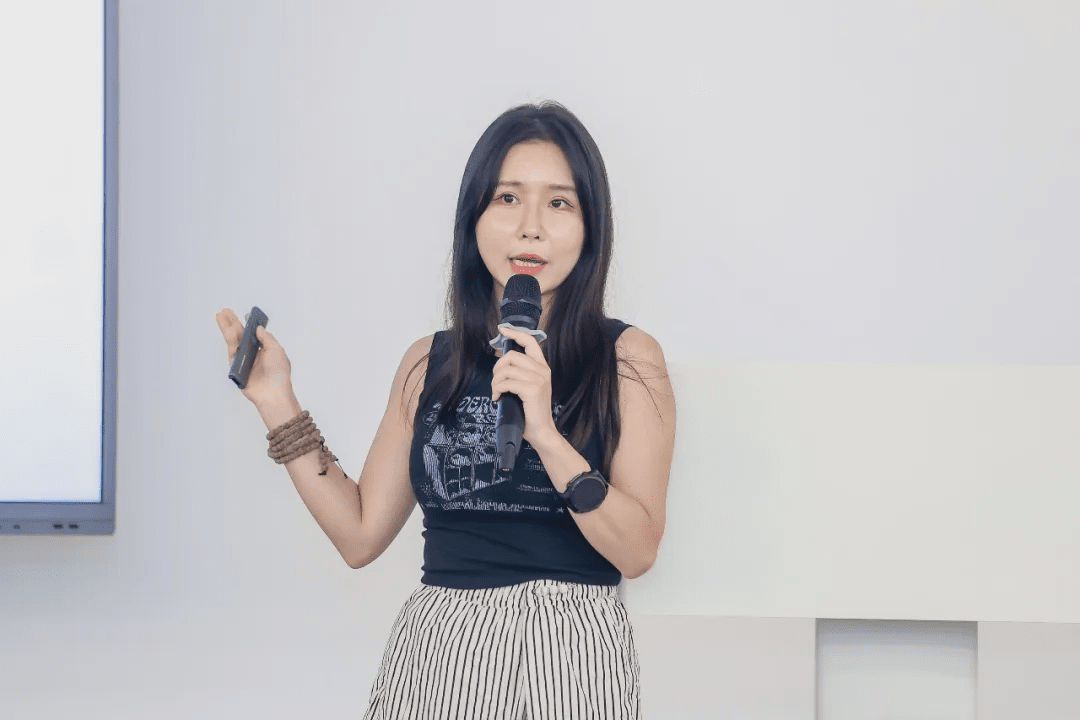
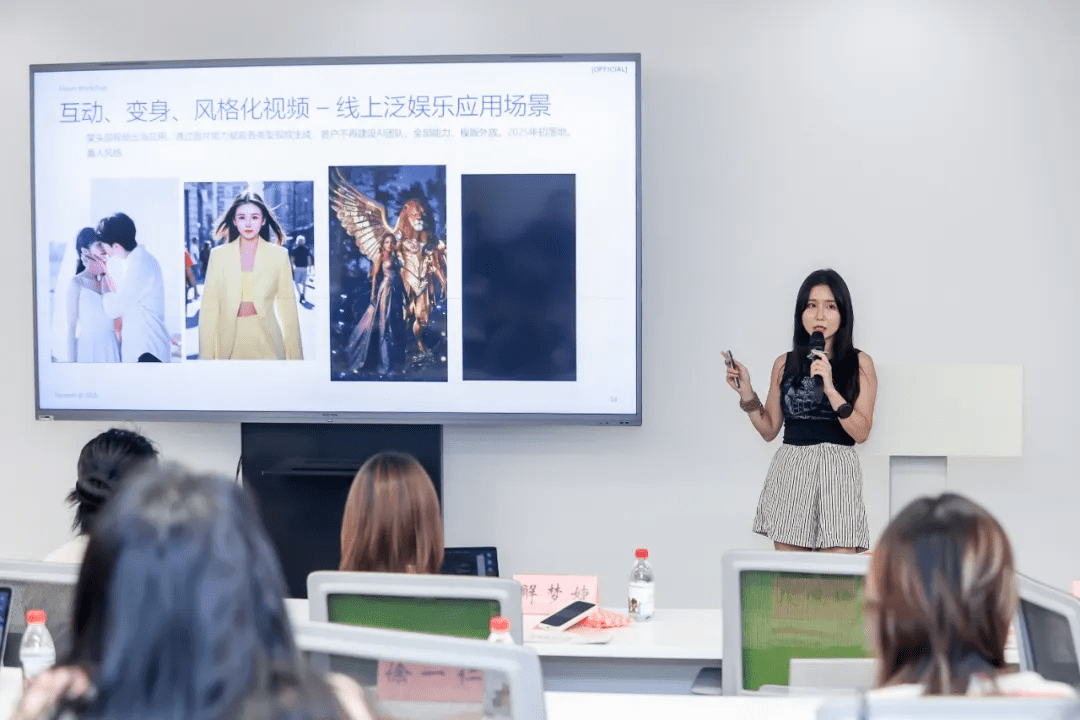
Mia, Founder of TensorsLab
Teacher Mia, focused on the field of AI content, brought a practical sharing on (serving the next generation of AI creators). She pointed out that while the AIGC market is experiencing explosive growth, more than 90% of AI projects struggle to enter actual production due to insufficient productization and engineering capabilities.
In response to the pain points faced by enterprise users, such as unstable effects, high technical thresholds, and low batch creation efficiency, TensorsLab has built an integrated tool platform covering the entire process from image generation to video editing. In the pan-entertainment field, its services for leading overseas applications generate over ten thousand professional portraits daily; in the cultural tourism scene, template video integrators in cooperation with scenic spots enable instant content generation for visitors; in the government sector, a micro-cluster for graphic and text creation customized for the police system supports localized deployment of multi-modal large models on the end side.
According to reports, the platform has helped various industries such as advertising, gaming, and government achieve a commercial closed loop of AI technology by lowering technical thresholds and optimizing batch production efficiency, catering to diverse needs from individual creators to large enterprises.
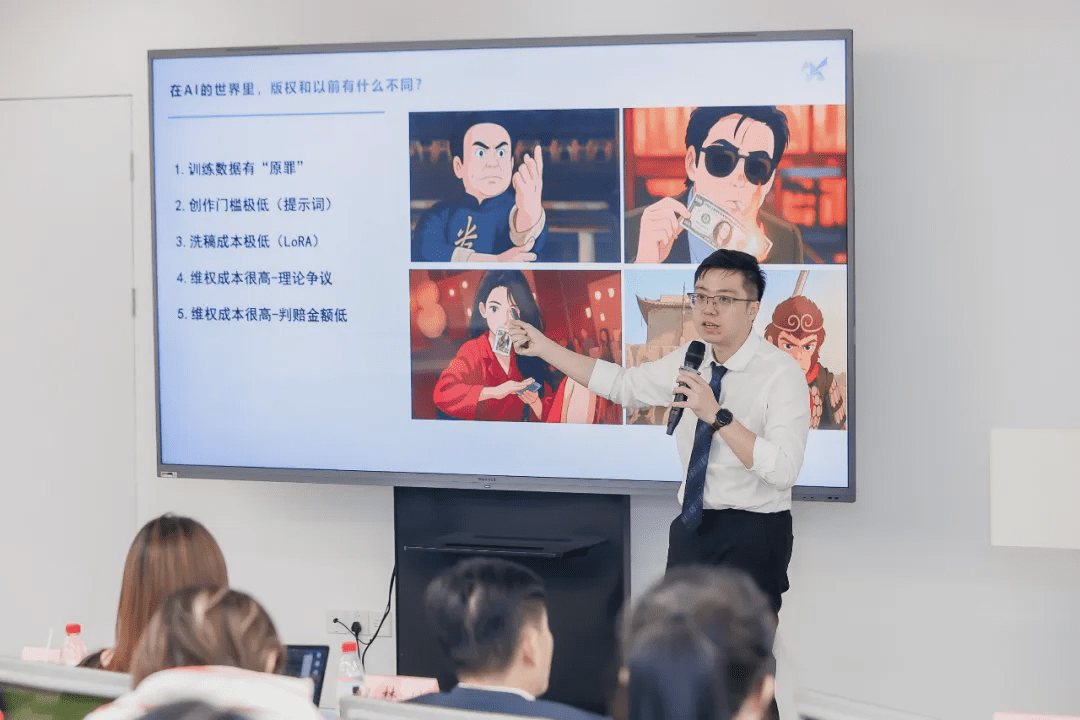
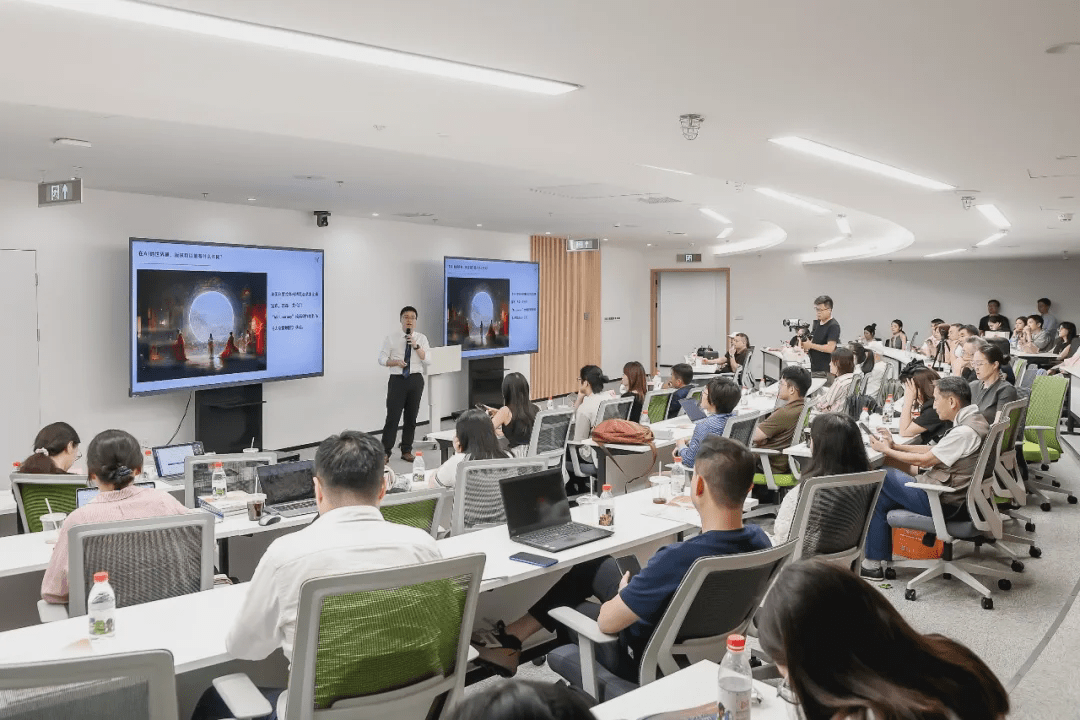
Initiator of the AI Compliance Circle, Director of the Legal Professional Committee of the Guangdong Provincial Artificial Intelligence Industry Association - Chen Huan
Lawyer Chen Huan's theme was (Creation in the Web3+AI Era - Recommendations for AIGC Copyright Protection Actions from Four Typical Cases), combining judicial practice and operational experience to analyze the copyright boundaries and protection strategies of AI-generated content (AIGC).
As an author of multiple AI legal works and an industry standards drafter, Lawyer Chen Huan's sharing provided creators with clear compliance guidance. Through four landmark cases, Lawyer Chen revealed the core logic of AIGC copyright protection - 'original intellectual input' and 'traceability of the creation process'.
Lawyer Chen Huan mentioned that the integration of RWA and AI may bring breakthroughs in copyright protection: blockchain can ensure a traceable full chain of creation, authorization, and revenue sharing, while smart contracts can simplify the rights protection process and reduce protection thresholds from a technical perspective.
Strategic Cooperation Launch Ceremony
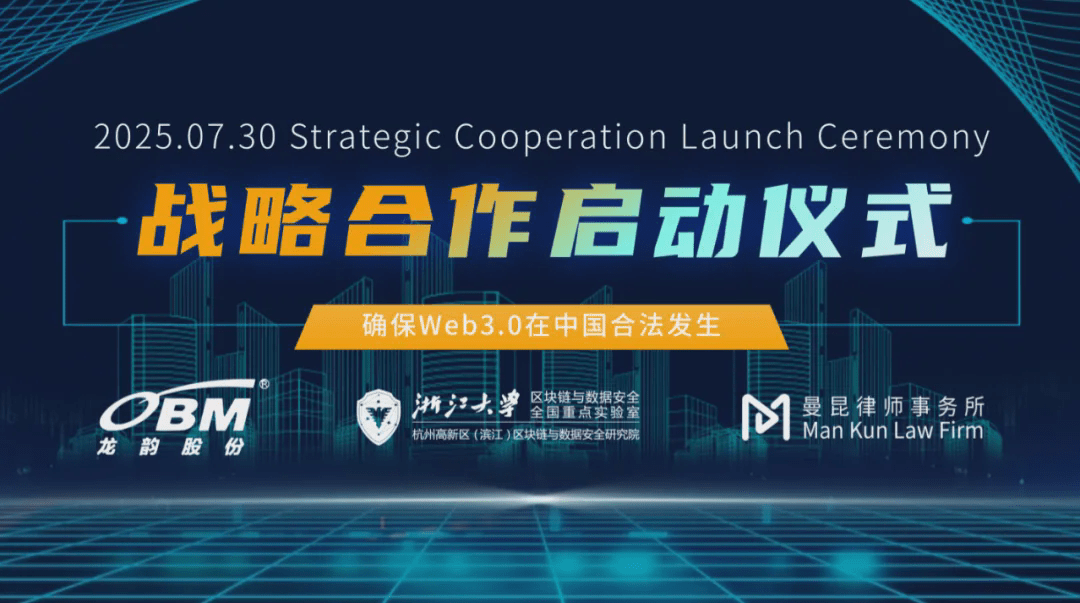
The 'Strategic Cooperation Launch Ceremony' initiated jointly by Longyun Cultural Technology Group, the National Key Laboratory of Blockchain at Zhejiang University Hangzhou High-tech Research Institute, and Mankun Law Firm is officially launched!
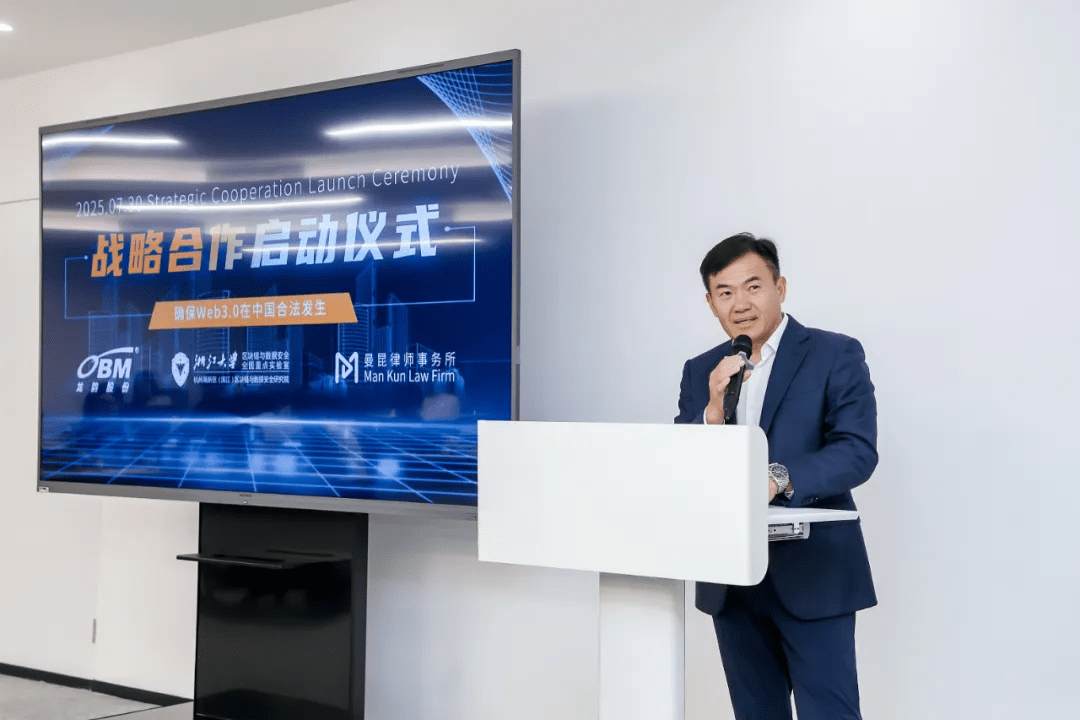
Mr. Duan Peizhang, the actual controller of Longyun Co., delivered a speech at the launch ceremony. He stated that as a cultural enterprise deeply engaged in content marketing for many years and having served numerous international brands, Longyun not only focuses on the dissemination effect of content but is also actively exploring a new path of 'how content can become quantifiable and tradable assets'.
He pointed out that the RWA mechanism provides unprecedented possibilities for the content industry, allowing cultural products to break free from platform dependence and traffic cycles and truly become digital assets with structured value.
In this context, this strategic cooperation not only marks the launch of a project but also signifies the innovative practice of the 'industry-academia-research-law compliance' model in China's Web3.0 field. The three parties will jointly promote the deep integration of technological innovation and regulatory dialogue, helping to build a more resilient and compliant Web3.0 development ecosystem that injects institutional momentum and practical strength into China's new digital economy track.
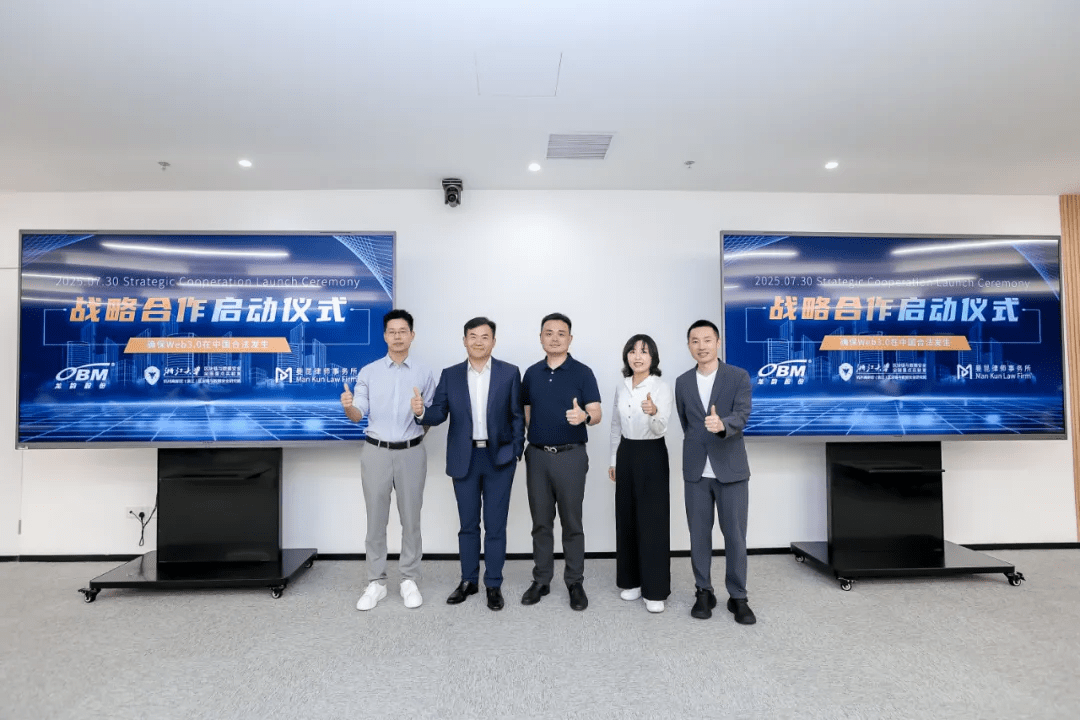
Guest AMA Session
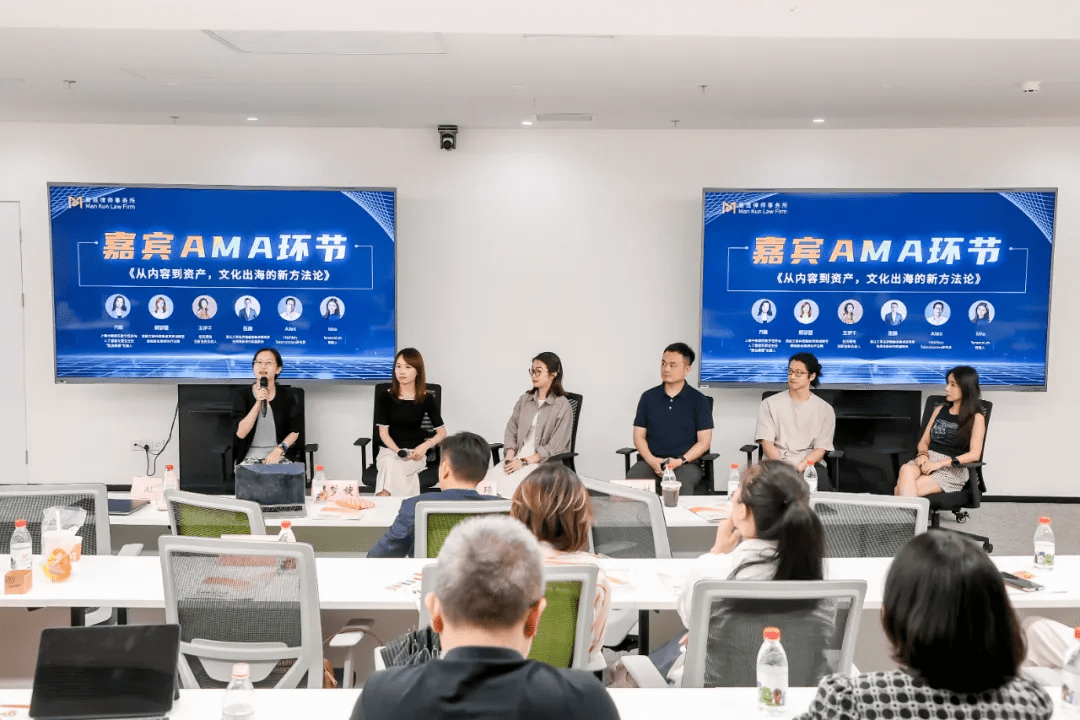
This roundtable AMA session invited six heavyweight guests to exchange views on various issues related to content assetization. They are:
Fang Yi | Director of the Digital Economy and Artificial Intelligence Committee of Shanghai Zhonglian Law Firm, Host of 'Digital Law Discourse'
Jie Mengjie | Chief Strategy Officer of Longyun Cultural Technology Group, Executive President of Yuheng Film and Television Group
Wang Yiqian | Head of Innovation Business at Kaiying Network
Zhang Shuai | Deputy Director of the National Key Laboratory of Blockchain at Zhejiang University Hangzhou High-tech Research Institute
Alex | Hashkey Tokenization Researcher
Mia | Founder of TensorsLab
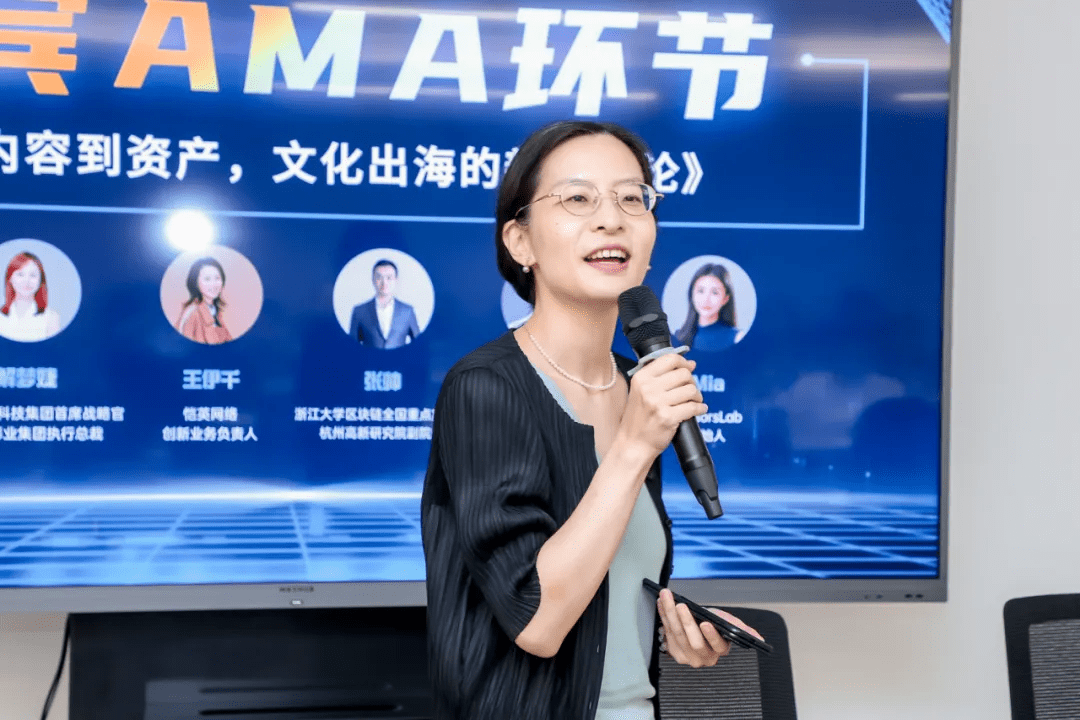
In this roundtable discussion, Dr. Fang Yi, Director of the Digital Economy and Artificial Intelligence Committee of Shanghai Zhonglian Law Firm and Host of 'Digital Law Discourse', served as the moderator.
She opened the topic: 'From the perspective of legal compliance, the landing of content assetization must solve core rule adaptation issues such as “rights confirmation” and “cross-domain regulation”. Only by establishing a clear legal foundation can content assets truly accelerate landing and circulation.' This statement sparked lively discussions among guests about legal boundaries and institutional innovations, laying a professional foundation for subsequent exchanges.
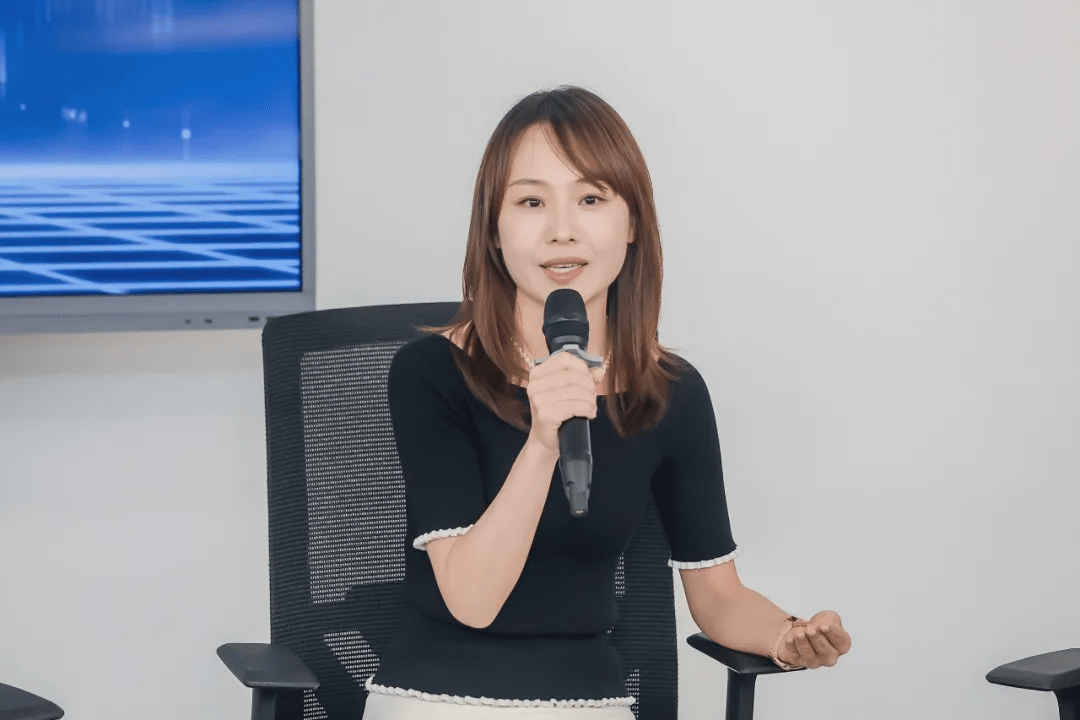
Jie Mengjie, Chief Strategy Officer of Longyun Cultural Technology Group and Executive President of Yuheng Film and Television Group, also shared that Longyun, as a company that has long been engaged in content creation and brand going overseas, has served globally renowned companies such as Procter & Gamble, Unilever, Tencent, and JD.com, accumulating rich global content operation experience. In recent years, Longyun has not only continued to expand its business segments in short dramas, IP incubation, and pan-entertainment content but has also built a more standardized and industrialized content production system to support Chinese content brands in going global.
On this basis, Longyun is also actively exploring how to leverage new technologies to promote the value upgrade of cultural content. She pointed out that RWA and Web3 open new imaginative spaces for 'content assetization'. She expressed that Longyun hopes to explore a sustainable path for the institutional overseas expansion of the cultural industry under the dual drive of AIGC and RWA.
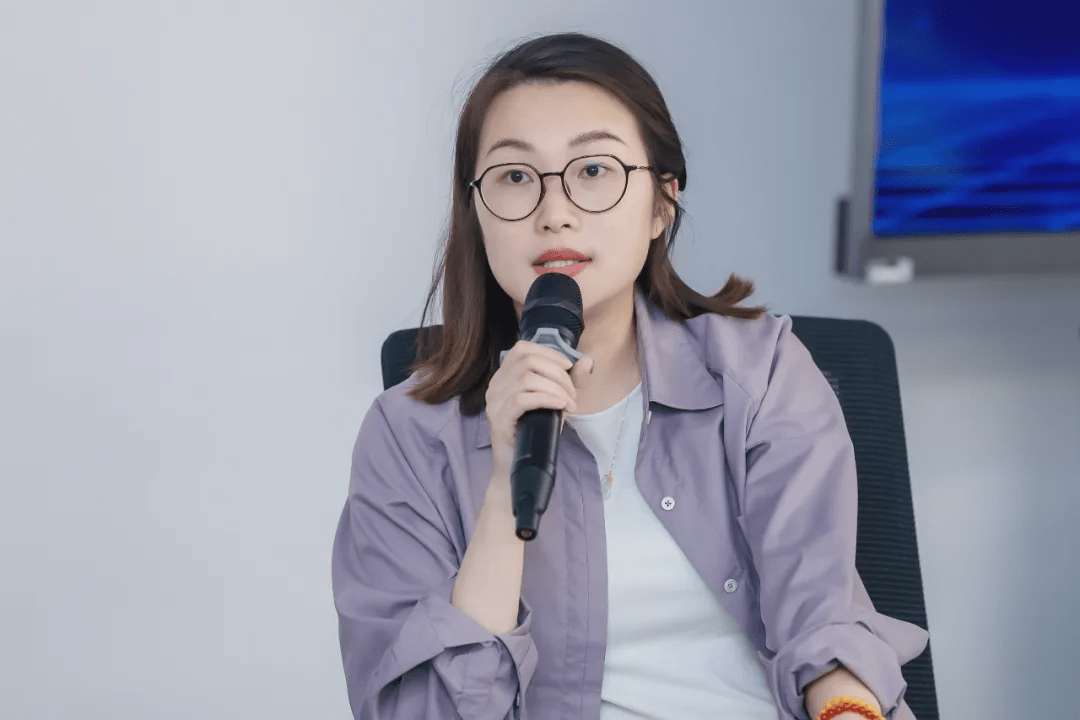
Wang Yiqian, Head of Innovation Business at Kaiying Network, stated that the integration of AI and Web3 is driving deep changes in industrial paradigms: AI serves as an 'efficiency engine' that significantly reduces labor costs and improves production and distribution efficiency through algorithm optimization and automation tools; Web3 acts as a 'trust foundation' that uses blockchain and smart contracts to solve structural trust issues such as data falsification and opaque processes.
The overlap of the two does not lead to a simple 1+1 but rather a multiplicative effect that compresses redundant links and breaks down collaboration barriers—manufacturers can use AI to analyze data and precisely match suppliers through on-chain contracts, while consumers can also verify the origin and obtain personalized content or service recommendations based on on-chain information.
Wang Yiqian concluded that AI efficiency × Web3 trust enhancement is accelerating the transformation of industrial collaboration from 'extensive collaboration' to a new paradigm of 'trustworthy and efficient'.
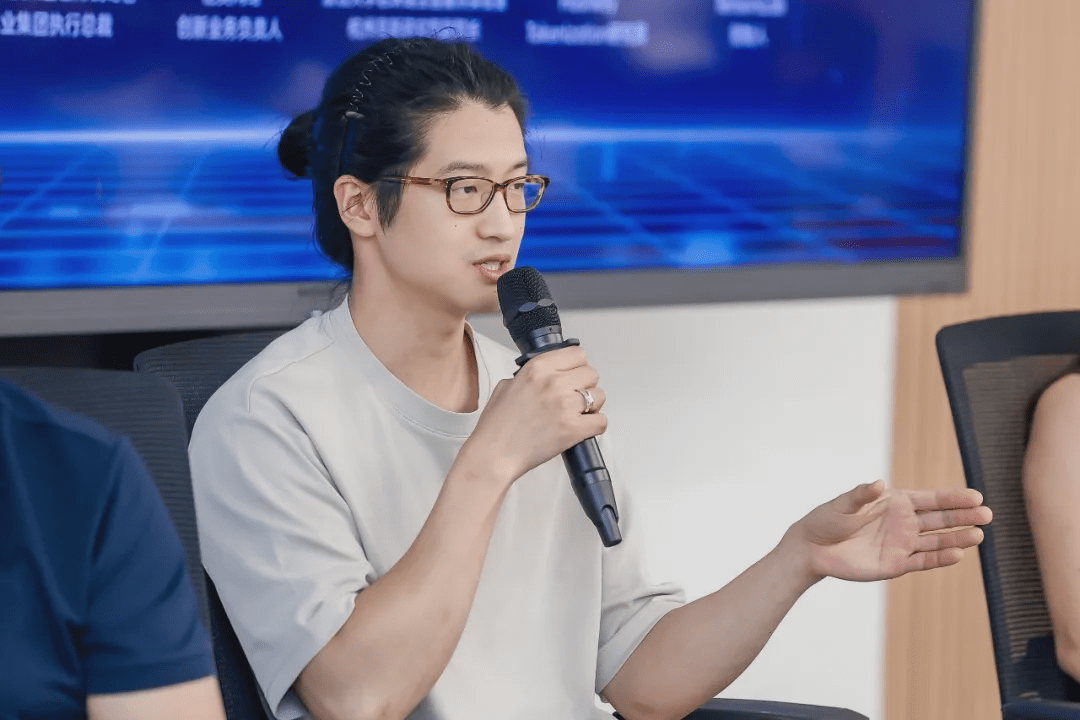
Alex, a researcher at HashKey Tokenization, pointed out that for content RWA to truly land, it must start from compliance, especially avoiding high-risk red lines such as 'illegal fundraising'. He emphasized that the key to the compliance path is:
Clarify the qualified investor admission mechanism to prevent illegal public participation;
Improve information disclosure and risk warnings to ensure investors' right to know.
At the Tokenization level, Alex proposed that content assets should be reasonably mapped as digital rights on-chain, including clearly defining elements such as revenue rights and usage rights to ensure a solid legal foundation and clear market recognition. He stated: Only with clear delineation of ownership and value structure can content assetization truly be 'understandable, investable, and transferable'.
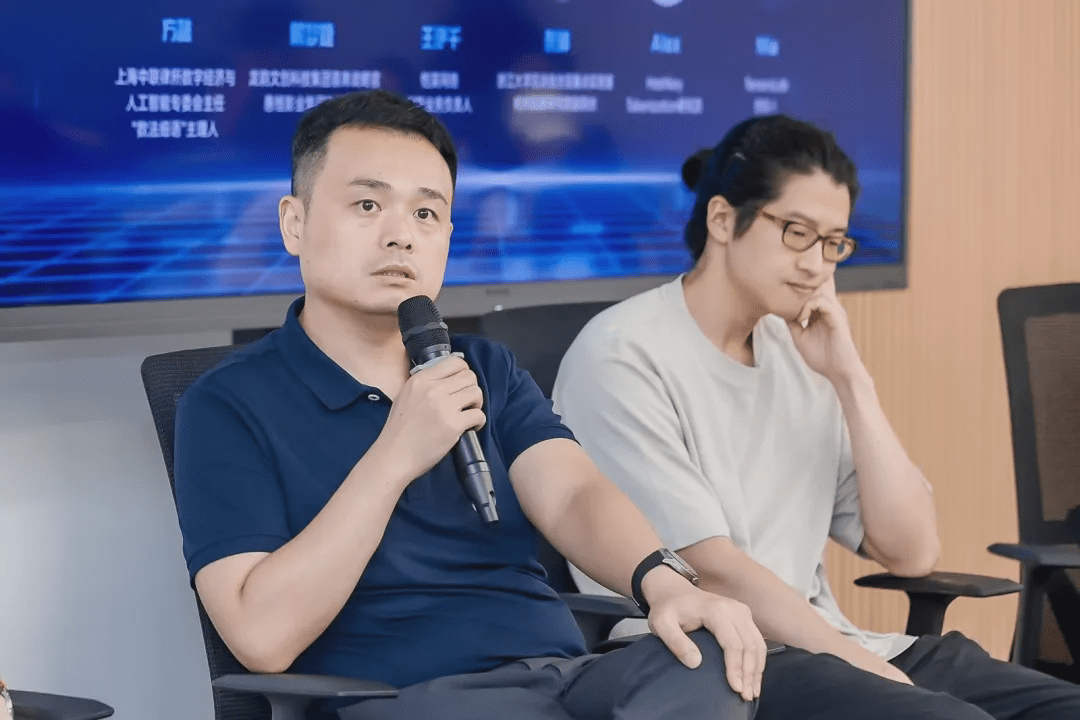
Zhang Shuai, Deputy Director of the National Key Laboratory of Blockchain at Zhejiang University Hangzhou High-tech Research Institute, stated that the valuation of cultural RWA should comprehensively consider the influence of culture itself, market demand, and potential cash flow, rather than relying solely on financial data. Structured issuance can achieve risk layering and reasonable allocation of returns.
From a technical perspective, using blockchain for asset on-chain and penetrative regulation not only helps cultural assets achieve financing but also enhances investors' ability to identify risks, improving overall transparency and compliance. However, he also noted that for this model to truly land, further exploration and adaptation with regulatory rules are still needed.
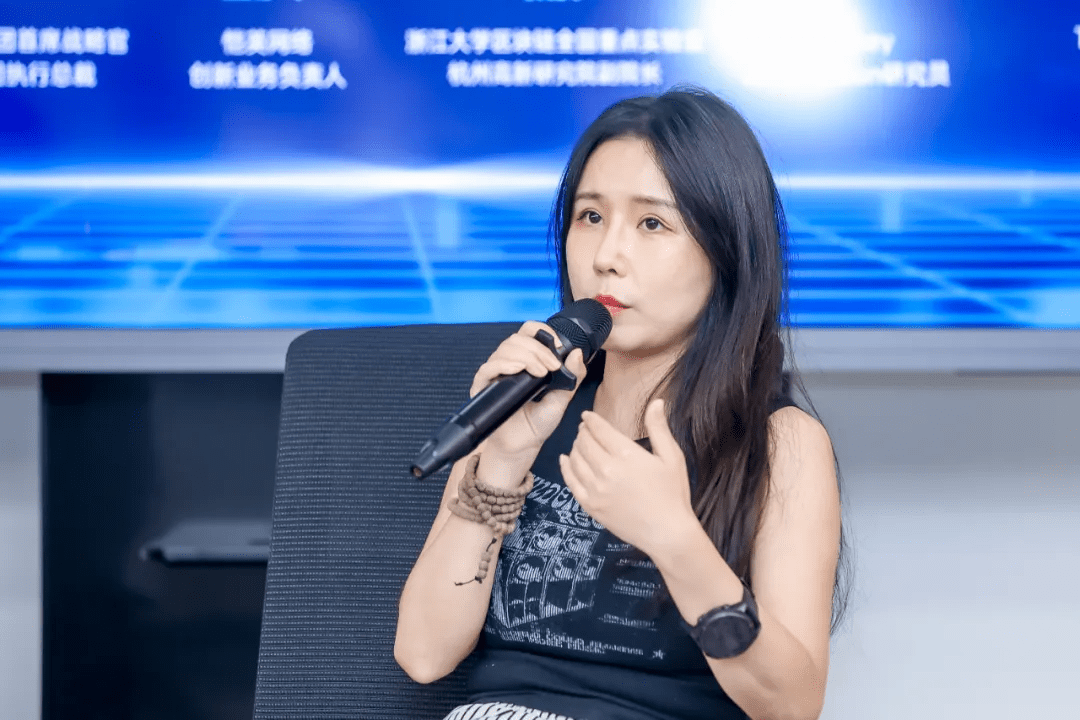
Mia, Founder of TensorsLab, stated that if IP is to ensure revenue rights when going overseas, the core lies in completing overseas intellectual property registration, clarifying the terms of authorization agreements, and effectively utilizing relevant international conventions for rights protection.
As AIGC gradually engages in content going overseas, brands have concerns while embracing new technologies. She suggested that companies could first pilot in market research and basic content generation through small-scale trials, supplemented by manual review mechanisms, and simultaneously promote through technological and legal means to ensure clear ownership of AI-generated content and controllable, evidence-based revenue from overseas IP.
Conclusion
Today's dialogue made us truly feel - AI is not a trend, and RWA is not a concept; they are driving a fundamental revolution about 'turning content into assets'. How to move forward in the future? Technology is evolving, rules are forming, and the key is whether we can make this path - practical, accessible, and far-reaching.
Through today's multi-perspective deep exchange, we not only saw a new imaginative space for confirming cultural assets and going overseas but also the real landing points brought by the integration of AI and digital assets.
With the evolution of technology and the improvement of systems, the confirmation, transaction, and overseas expansion of cultural content will become clearer and more practical, truly injecting new vitality into the real economy and opening up new growth channels.
Thank you to all the guests present; we look forward to seeing you next time!

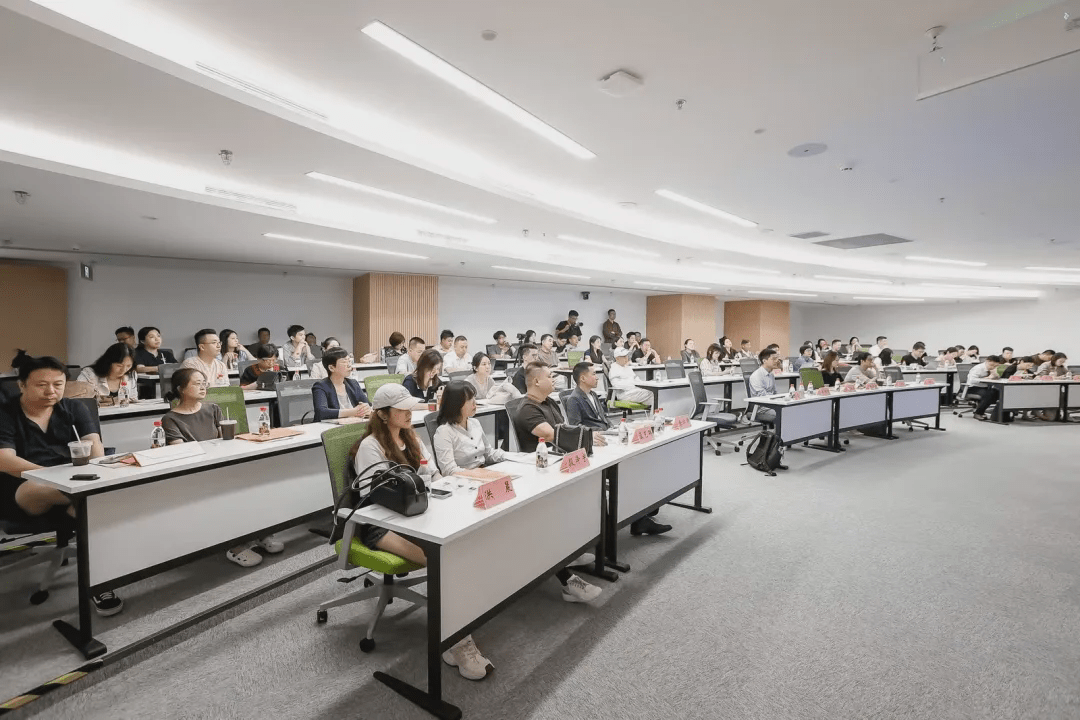
/END.
Original Author: Mankun Brand Department